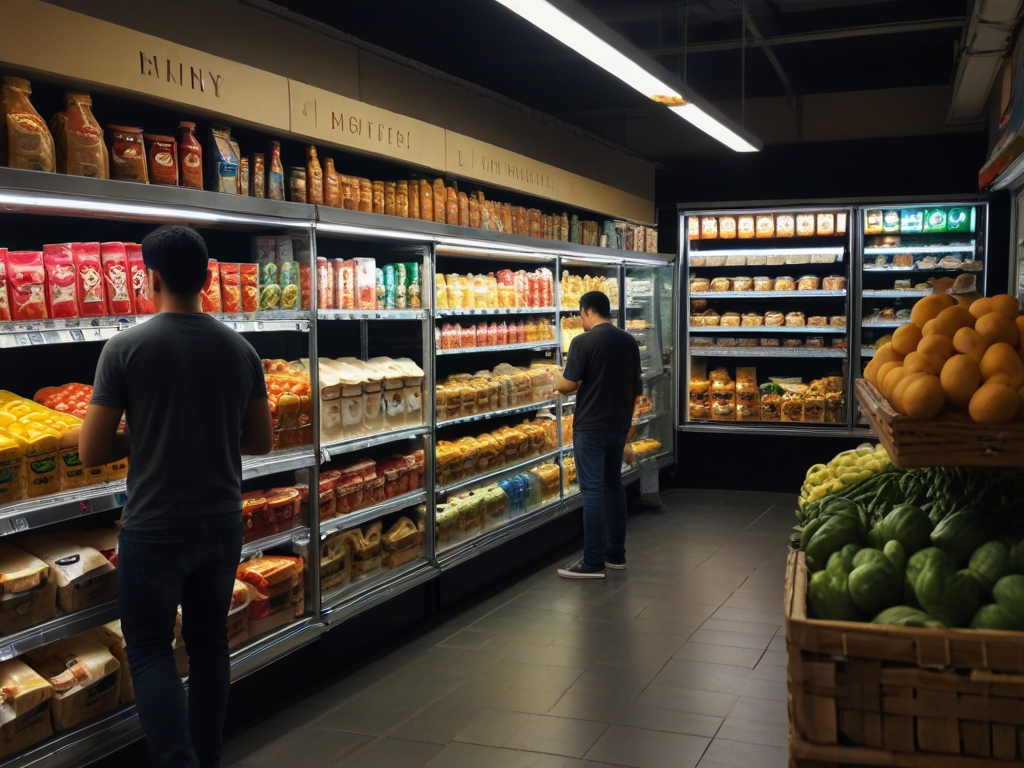Distribution Channel Ought to Be Delocalized: Majority of Customers Prefer to Buy in Bulk
All of It Is (the sale) without packaging (the products), in Quantities chosen by the customer and in Reusable or recyclable containers.
Today, more and more foods and products are available in bulk: such as pizza, cakes, yogurt, creams, also various household products, cereals, crackers, coffee and tea. On the other hand, cannot go directly to the consumers to sell certain products on an unreasonable increment scale. Hence, the regulation of sales should be implemented purposely. This is a situation where microorganisms are at a higher risk due to the fact that the handling of the frozen foods increases the likelihood of the presence of microorganisms.
The behavior survey of Nielsen, carried out at the end of 2018 at the request of Consumer and User Protection League CLCV, has noted that 37% of French citizens buy products on a large scale as well as fruit and vegetables. Studies show that a plant-based diet is most advantageous to the body which individuals consume oilseeds such as walnut or hazelnut for 58% and dried fruit for 47%. They prefer legumes like lentils for 32% and cereals like oats for 28%.
Please note
However, shopping in bulk has existed on longer in the life style of French people and trend will keep on going. Besides, the law on combating climate change the 22 of 2021 of August, dedicates bulk growth in large and mid-size supermarkets. Through all these affairs, each brand will need to find another 20% of its stores for wholesale.
Bulk product prices: destroying multiple opinions
You may have heard people say this, as companies add the price of other expenses such as product packaging and via such media communication and marketing costs, bulk products are usually cheaper, right? Nonetheless, the problems of handling in large volumes arise, and major demands on handling and logistics (filling silos, cleaning, etc. ) become more explicit. Special equipment (liquid product dispensers, etc. ) should also be used. Your risk of loss is much greater (non-restoring containers).
Listen to the given audio Such mentioned contributing factors augment the rise in expenditure.
Conversely, because of theeconomies of scale for large quantities, wholesale is probably cheaper, but it may still depend on the type of product you are buying. The consumers’ associations issued a survey that settled in 2020 on buying in bulk being cheaper by 6% on average of the ready-made products. While the price of some foods on the market is a bit higher wholesale because it’s a very competitive market, such as pasta, rice, and cereals, the price of other foods, like eggs or poultry, is a bit cheaper wholesale because there are less suppliers. If the case, the price of the bulk amount of dry fruits (such us as almonds and cashews) (-21%). This applies to the case of legumin – such as lentils and beans (-18%%).
Coarse price purchases are not necessarily always the right way to save. Knowing for sure is as easy as doing a label comparison which indicates the price for each kilogram.
Organic products cost less if bought in bulk form.
In the middle of June 2021, the INC (The National Institute of Consumption) and Ademe (The Agency for Ecological Transition) conducted a price investigation in 511 establishments in France, in both supermarkets and hypermarkets (Auchan, Carrefour, Monoprix (Ally of The Corner*)) as well as organic stores and other cash registers focused on wholes The study looked at 8 products: olive oil, liquid detergent, liquid soap, sugar crystals-including granulated sugar and liquid sugar, wine vinegar, green lentils, white rice.
A contrast between the products show that organic goods sit more often in bulk sales, while the conventional item prices are higher in bulk than pre-sliced ones.
What is more, you pay less for the organic food products that are carried in bulk rather than packed individually into bags or boxes. Putting all brands together, prices are in favor of wholesale for five of the eight items selected for the study: basmati rice (-4%), lentils Verte (-7%), almonds (-15%), cristal sugar and Liquide Soap Marseille (-22%).
As much as some organic products cost less in such shops as organic supermarkets than in supermarkets.
INC conducted the study and they found organic stores price to be lower than bulk store wholesalers, supermarket or hypermarket prices. It is the main issue that the brands of this kind face. They sell fractionally. Their main transaction type is wholesale. The distribution networks of these cooperatives are better organized than operations carried out individually and their location (partly “grandes ensembles) gives them a higher visibility, which also results in a wider customer base.
Buying in bulk to minimize on your spending money budget.
Besides the cost itself, wholesale offers the money saving feature in other ways, say, you may buy only the amount that you actually need. No need to buy a big bag of raisins just be in the trash can after sitting hidden and forgotten at the back of your cupboards for months.


